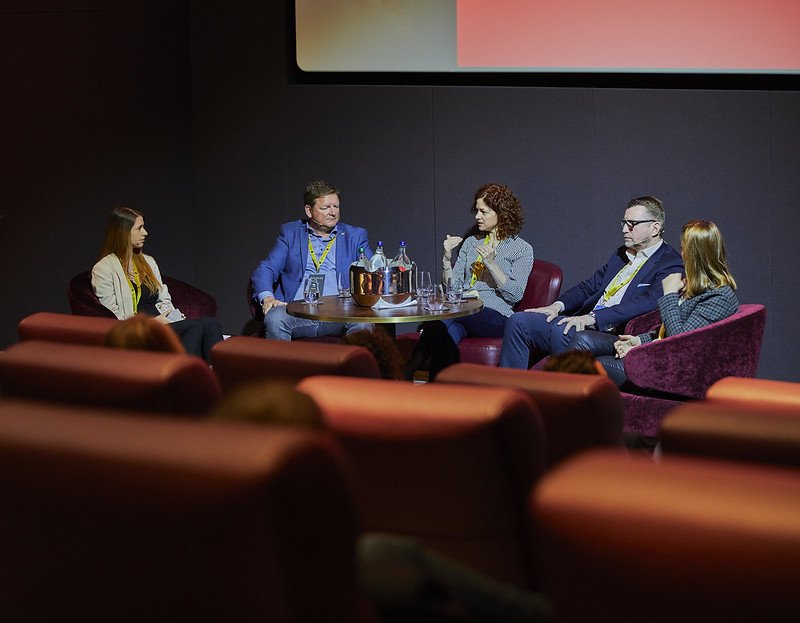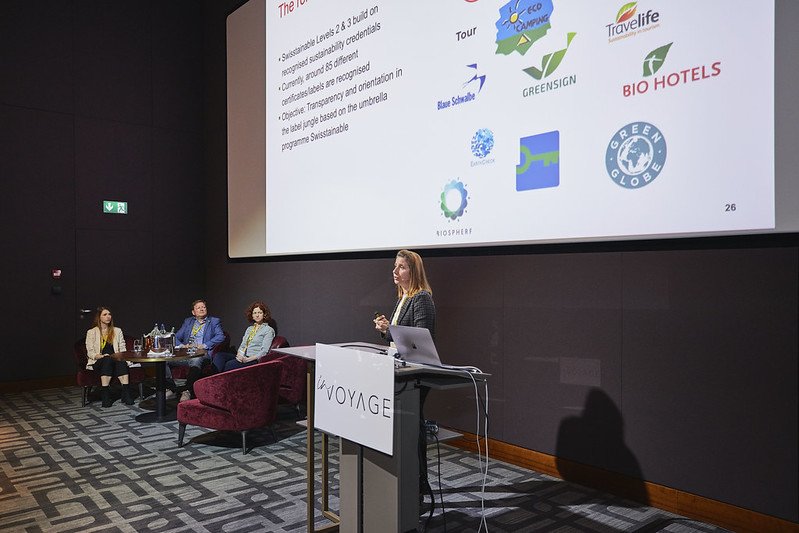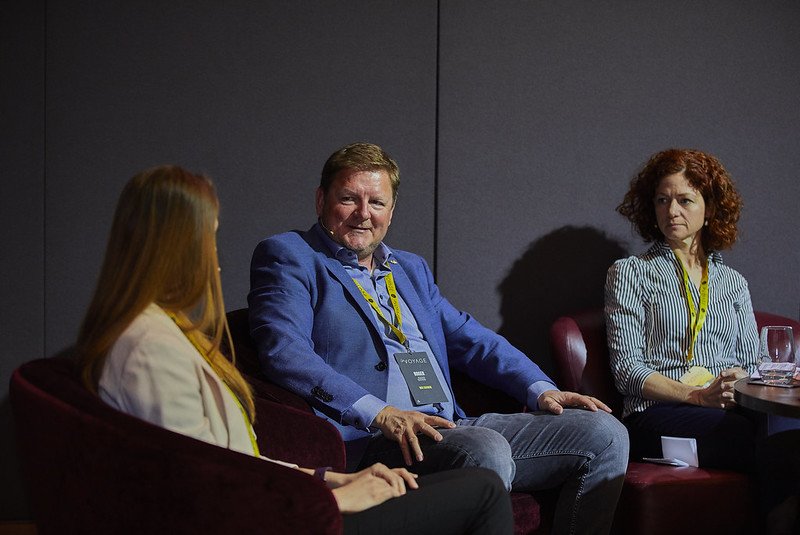InSPIRED : A Swiss lesson in sustainability from Lucerne
Switzerland may be a small country, but it thinks big when it comes to sustainability, and that's one of the reasons we chose to host our most recent event there. Leading the way with perhaps one of the hottest topics on the travel agenda there's so much we can learn from their approach.
It goes without saying that without sustainability, there is no future – it's no longer a "nice to have", it is essential. The shift in focus has moved away from ‘if’ and towards ‘how’ to achieve it sensitively and successfully. For many - and especially after such a tough couple of years - it feels like there's a mountain to climb, but we can all take a lesson from the Swiss who are at least halfway there already.
Letizia Elia, Swisstainable
Speaking at the Swisstainable panel discussion in Lucerne, industry professional and fellow panellist Ian Cummings, Global Head of CWT M&E commented, “We can control what we do and therefore I think we need to be making the right steps and, for me, sustainability is around fulfilling the need today and making sure that we don't negatively impact the need for our children – and future generations.”
“Sustainability goes very well with quality – it is a very important aspect,” explained Letizia Elia, Head of Business Development & Member of the Board at Switzerland Tourism, “so, we have had a lot of interest from luxury hotels and hospitality, and we work with destinations and providers to provide solutions that don't cause admissions in the first place.”
inVOYAGE welcomed industry leaders including Letizia Elia, Head of Business Development & Member of the Board at Switzerland Tourism; Ian Cummings, Global Head of CWT M&E; Roger Joss, Head of International Sales at Rigi Bahnen and Isaline Grichting-Corlet, Head of the Lucerne Convention Bureau to share their views and best practise on this subject as part of a panel discussion delivered at inVOYAGE Lucerne, and moderated by Olivia Salvage, Senior Event Coordinator EMEA at doTERRA.
Commenting on the organisational relevance of sustainable travel, Ian Cummings continued, “It’s important for us as an agency to understand where the corporate (client) is on their journey and then help with applications and solutions that support their goals.”
Letizia Elia, Head of Business Development & Member of the Board at Switzerland Tourism added: “We’re convinced the pandemic reinforced the desire of our guests to be close to nature and to not only consume consciously but also to have an authentic experience. We recommend that they experience local culture, enjoy authentic experiences, consume regional produce and stay longer to delve deeper into a destination.”
Key takeaways gleaned from the session, outlining ways in which planners across the globe can take small steps towards reducing their carbon footprint and delivering both exceptional and memorable incentive trips, included:
• Choosing public transport as a sustainable option
• Organising a corporate volunteering day in an area of natural beauty
• Opting for sustainable accommodation
• Dining at places sourcing local, seasonal food
• A ‘Taste the Waste’ cooking class
• Seeking a sustainable balance when choosing activities
• Reducing footprint by staying longer
Commenting on the insights gleaned from the session, Olivia Salvage, panel moderator and Senior Event Coordinator EMEA at doTERRA said, “You can still enjoy amazing activities, such as electric snowmobiles, but do it caringly, to pave the way so that other people in the future can also enjoy it.”
Isaline Grichting-Corlet, Head of the Lucerne Convention Bureau agreed: “We have to show our partners that sustainability is very important. We want to motivate them to do more on the topic of sustainability and I think the most important thing is to communicate and to show our clients and potential clients that we do a lot already.”
Switzerland is committed to becoming carbon neutral by 2050, and with an increasing number of guests actively seeking more sustainable ways to travel, it would appear that attitudes are definitely shifting and those travelling less frequently, are more focused on seeing nature and enjoying outdoor activities.
More than 900 organisations have already joined the Swisstainable programme, which costs nothing to participate in but has numerous benefits including a positive economic impact, the chance to review and develop sustainability as a business, being seen as a responsible organisation and being more attractive employer as well as contributing to the country's sustainable development as a travel destination.
“It is very important to work together with Swisstainable,” said Roger Joss, Head of International Sales at Rigi Bahnen. “We’re very happy to be on the highest level there and to co-operate more closely.”
More generally we heard that sustainability also brings quality, which can help to sell it, brings people closer to nature and is no longer a niche topic – it’s something we are all deeply concerned about and something we can all do something about. Without sustainability there is no future – it’s no longer a “nice to have”, it’s an essential.





